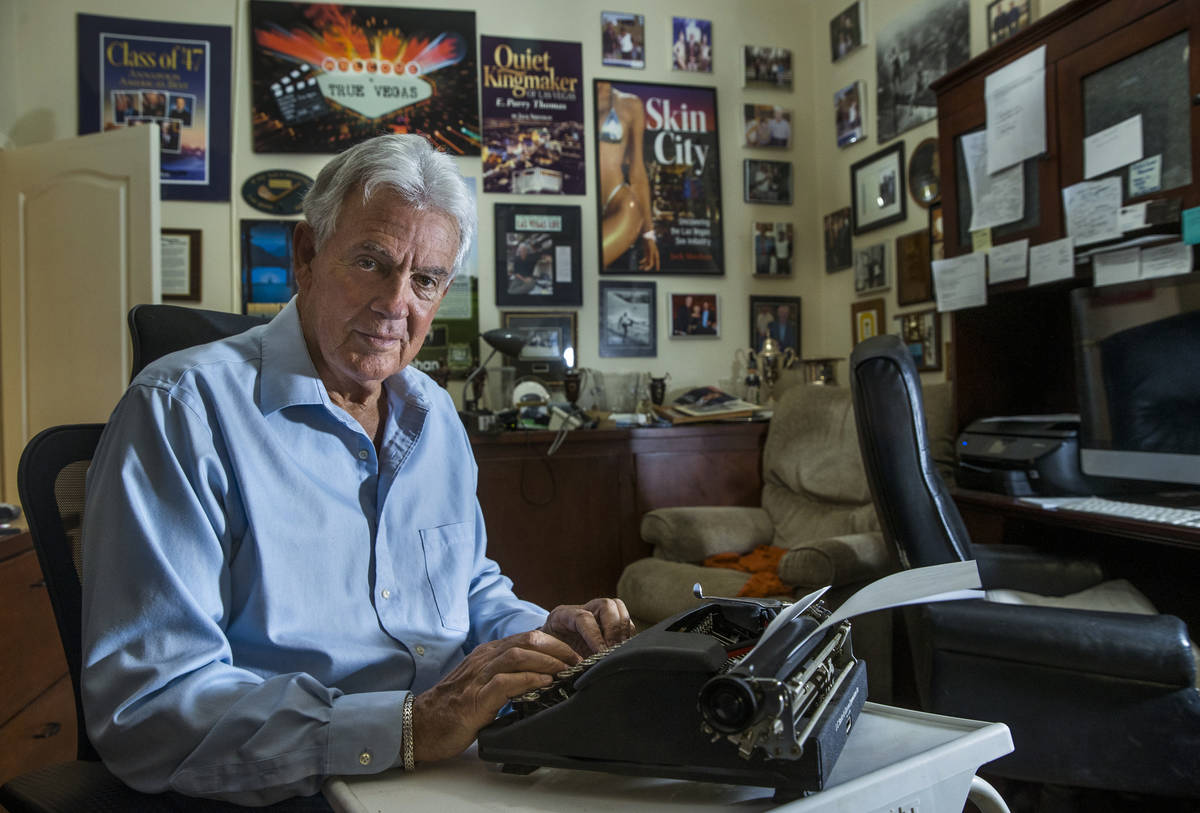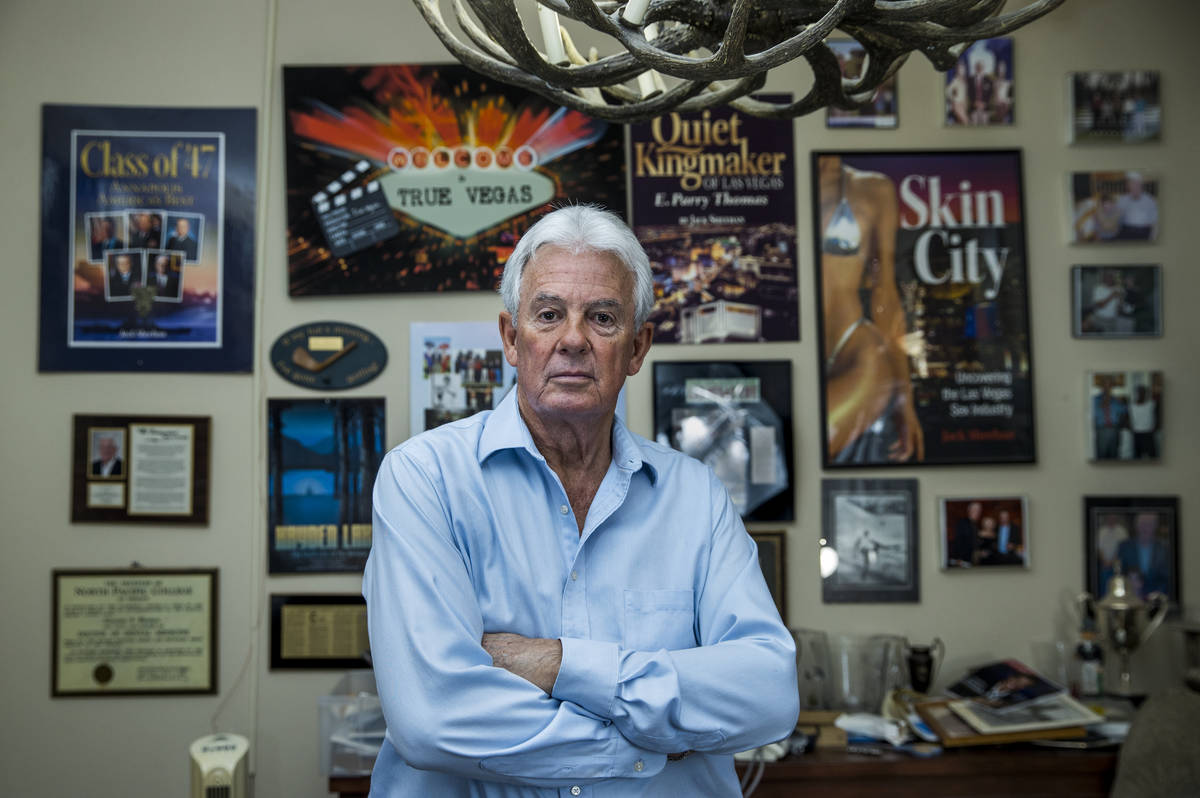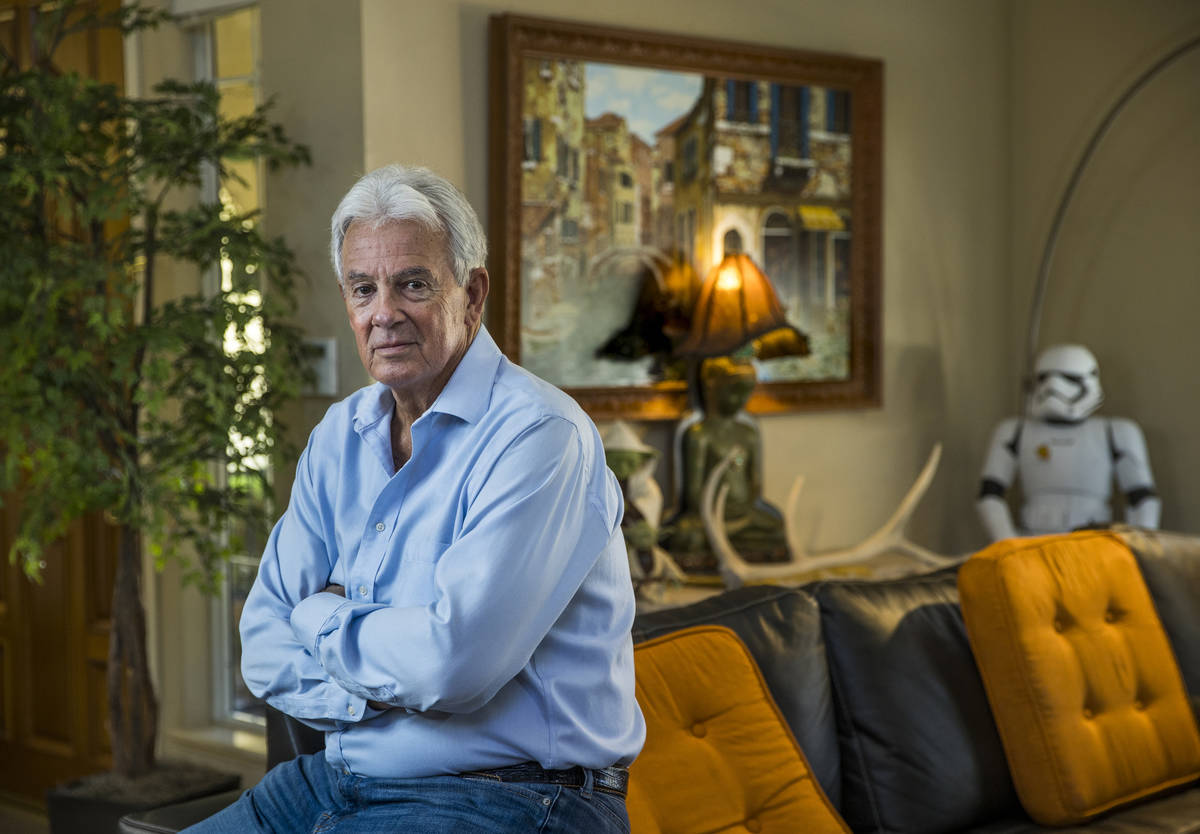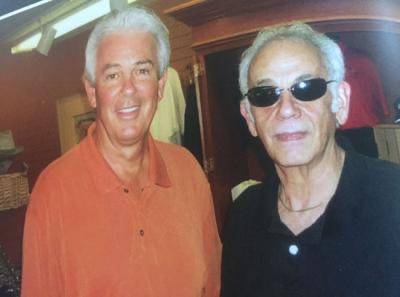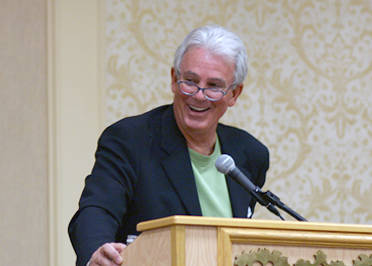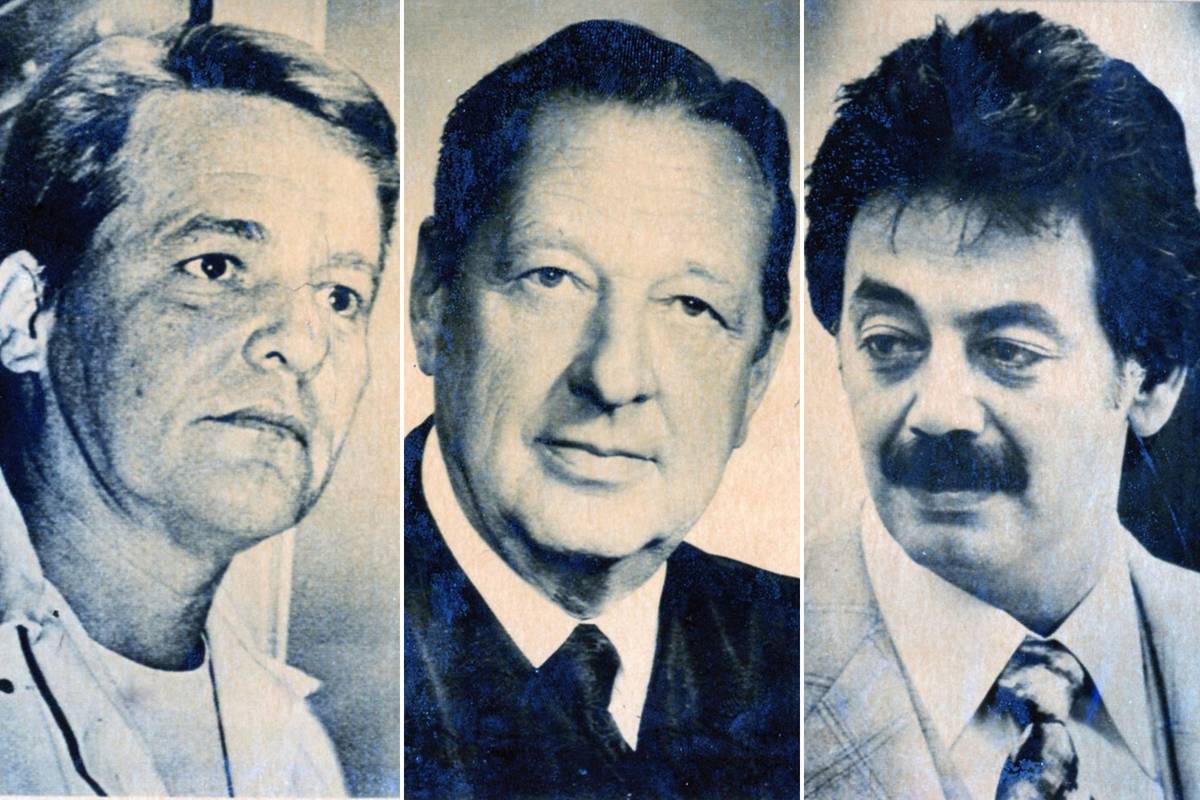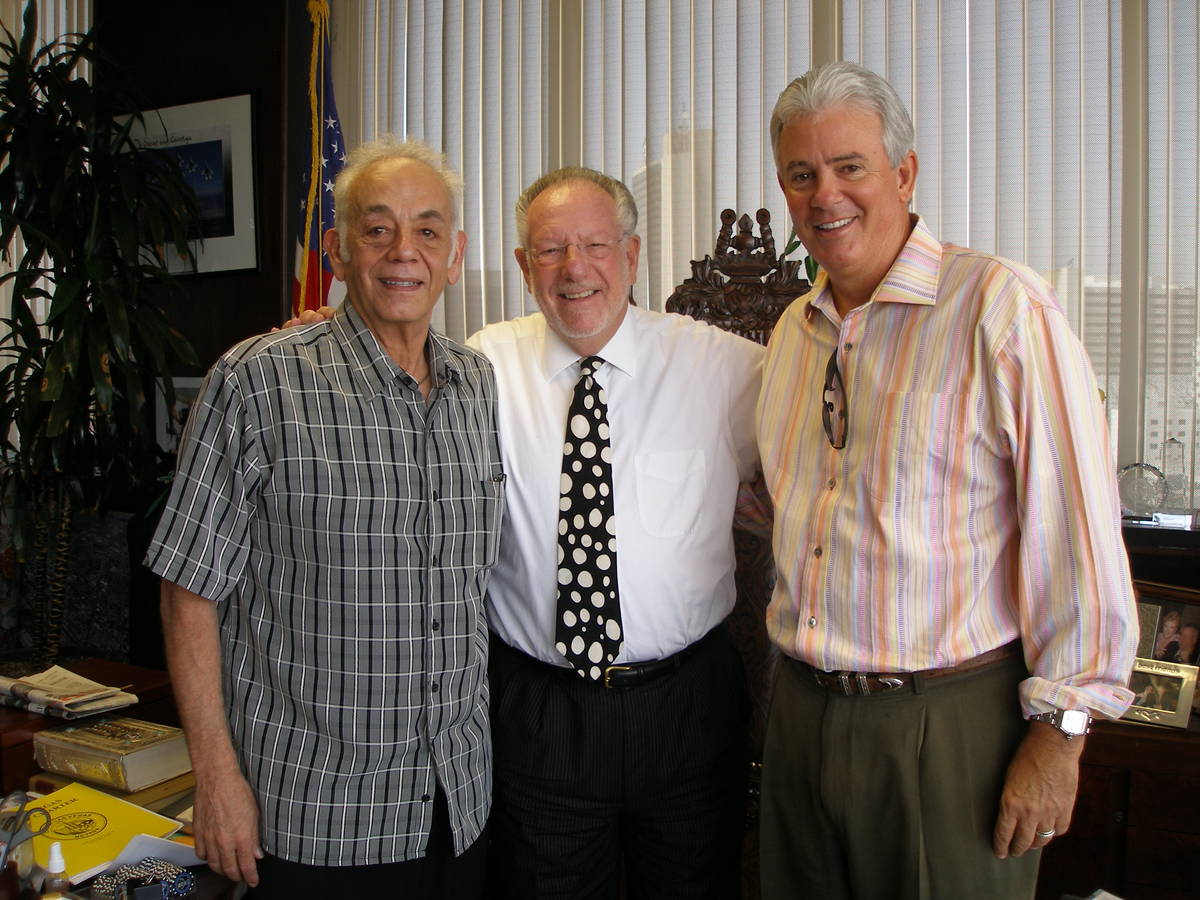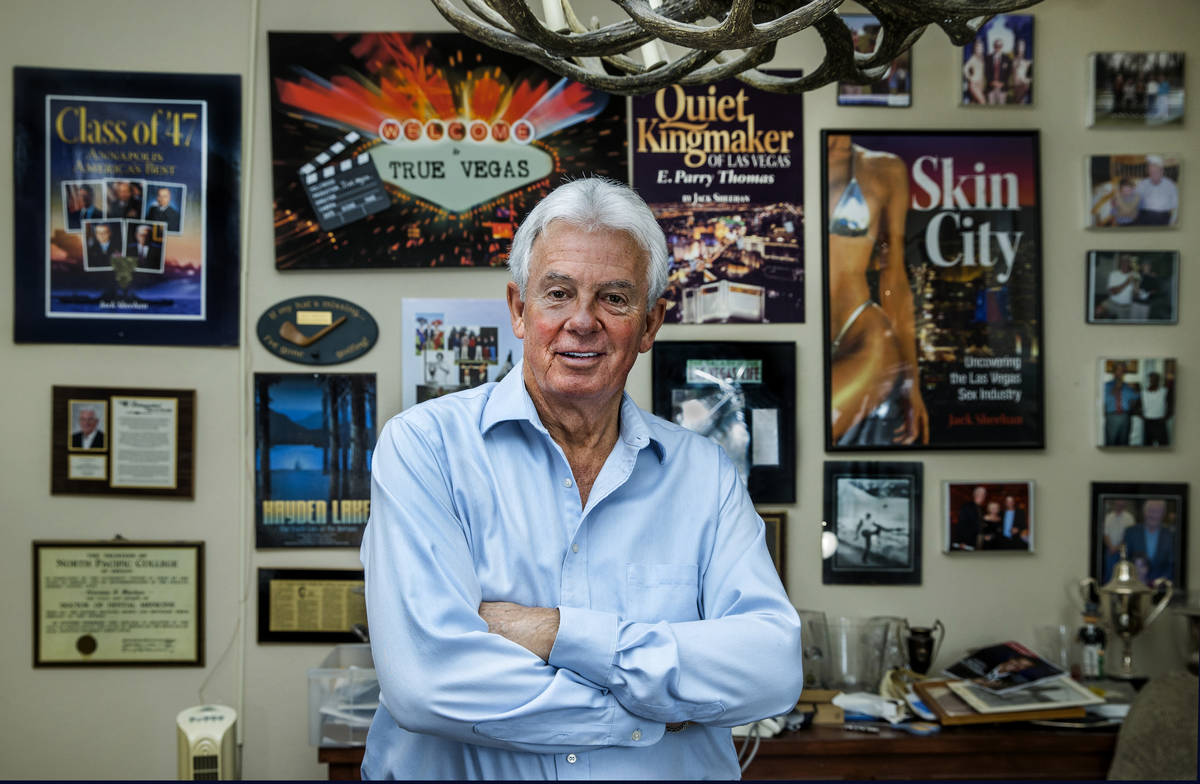‘No Las Vegas story can hold a candle to this one.’
Renowned author Jack Sheehan is bent on making last century’s “Crime of the Century” the documentary of this century.
Sheehan has for nearly 15 years been developing a project now titled “Do A Nickel.” The work is centered on legendary drug kingpin and Las Vegas high roller Jimmy Chagra, who in the late 1970s was the largest marijuana smuggler in the country. The documentary’s title refers to the five-year prison sentence for marijuana smuggling in the 1970s.
Chagra was also a celebrated gambler in Las Vegas, known to lose $1 million on the golf course or at the blackjack table and “not drop a bead of sweat,” as Sheehan says.
Sheehan filmed dozens of hours of interviews with Chagra. Those interviews are the spine of this upcoming project with Skeleton Key Productions, co-founded by Dr. Ryan Kissling, Bill Maursky and Vanesssa Hickey. Kissling is a viral and internet marketing pioneer who has managed the marketing teams for Monster Energy and Smart Water. Kissing is also a chiropractor, and owns six Align Med locations in Las Vegas.
Hickey has been a director on AMC’s “The Walking Dead” for four seasons. Maursky is the company’s utility player, who has been production manager for 30 films, “Godzilla: King Of The Monsters,” “Spider-Man: Homecoming” and Tom Cruise’s “Oblivion” among them.
The production company moved to Las Vegas a couple of months before COVID hit, seeking a choice Vegas film to produce. The Chagra saga hit the mark. Info on the “Nickel” project, and the production team, is at www.skeletonkeyproductions.com.
Sheehan, who has penned biographies of such Las Vegas pillars as Circus Circus founder William Bennett and banking magnate E. Parry Thomas, says Chagra’s tale is the quintessential Vegas story.
“When he stayed at Caesars, he acted like Caligula,” Sheehan says.
To use a golf term, the author is about an 8-foot putt from bringing this project to fruition.
“Similar to any filmmakers, we are looking for finishing funds and still open to outside investors, but with Las Vegas ties,” Sheehan says. “We have skin in our own game but would love to keep this story in our city.”
Sheehan wants to finish the filming in the Las Vegas area by next spring, if such work can be achieved in the pandemic. Eventually, he sees a documentary series reaching a massive audience on major subscription streaming services.
“‘Tiger King’ has been seen by 75 million Americans,” Sheehan says. “Those people paid, one way or another, to see it. And no Las Vegas story can hold a candle to this one.”
It’s a wild, tragic yarn.
Chagra and his older brother, Lee, built their pot empire out of their hometown of El Paso, Texas. They delivered their product to the States from Mexico and Colombia, employing a half-dozen planes and a quartet of freighter ships. Jimmy Chagra became a Vegas celebrity, appearing at Muhammad Ali title fights at Caesars Palace and even in film (his cameo in “Electric Horseman” with Jane Fonda and Robert Redford a leading example).
The brothers collected $5 million to $10 million for every delivery. Jimmy Chagra laundered that money in casino cages and by taking over all six spots on blackjack tables to play $25,000 a hand. He was legendary for tipping, too, doling out tens of thousands of dollars to dealers and cocktail servers.
The operation unraveled when the brothers were arrested on drug-trafficking charges. Jimmy Chagra was to appear before U.S. District Judge John Wood, whose nickname was “Maximum Sentence” for deserved reasons. It was thought that the Texas judge would put Chagra away for life if he were convicted. Chagra allegedly enlisted Charles Harrelson, the reputed hit man father of actor Woody Harrelson, to assassinate Wood and spare a life-ending sentence.
The judge was shot to death outside his San Antonio home in May 1979, just before trial, the first federal judge ever assassinated. Harrelson was convicted of the crime, and Chagra was accused of paying for the hit. However, through some courtroom acrobatics from “mob lawyer” Oscar Goodman, Chagra was acquitted of murder and conspiracy to murder but convicted of lesser obstruction of justice and drug charges.
In 2003, Chagra was released from prison because of his failing health (he was also stabbed on his first week of incarceration, telling Sheehan, “Prison is not a a nice place.”). The federal government sent him to Mesa, Arizona, to live underground. Sheehan managed to track him down in 2006, sat with him and recorded 30 to 40 hours of never-seen audio and video footage. Chagra died in 2008.
Sheehan still has those interviews. Producers want to re-enact the plane crash in Columbia, moving the site to Las Vegas, central to the movie’s plot. He’s seeking a well-known actor to narrate part of the story.
Sheehan knows he has a hit on his hands. Just listening to him describe the details gives you chills.
“When you put it all together,” says the man who spins the saga, “I think it’s the great untold Las Vegas drug story.”
John Katsilometes’ column runs daily in the A section. His “PodKats!” podcast can be found at reviewjournal.com/podcasts. Contact him at jkatsilometes@reviewjournal.com. Follow @johnnykats on Twitter, @JohnnyKats1 on Instagram.



